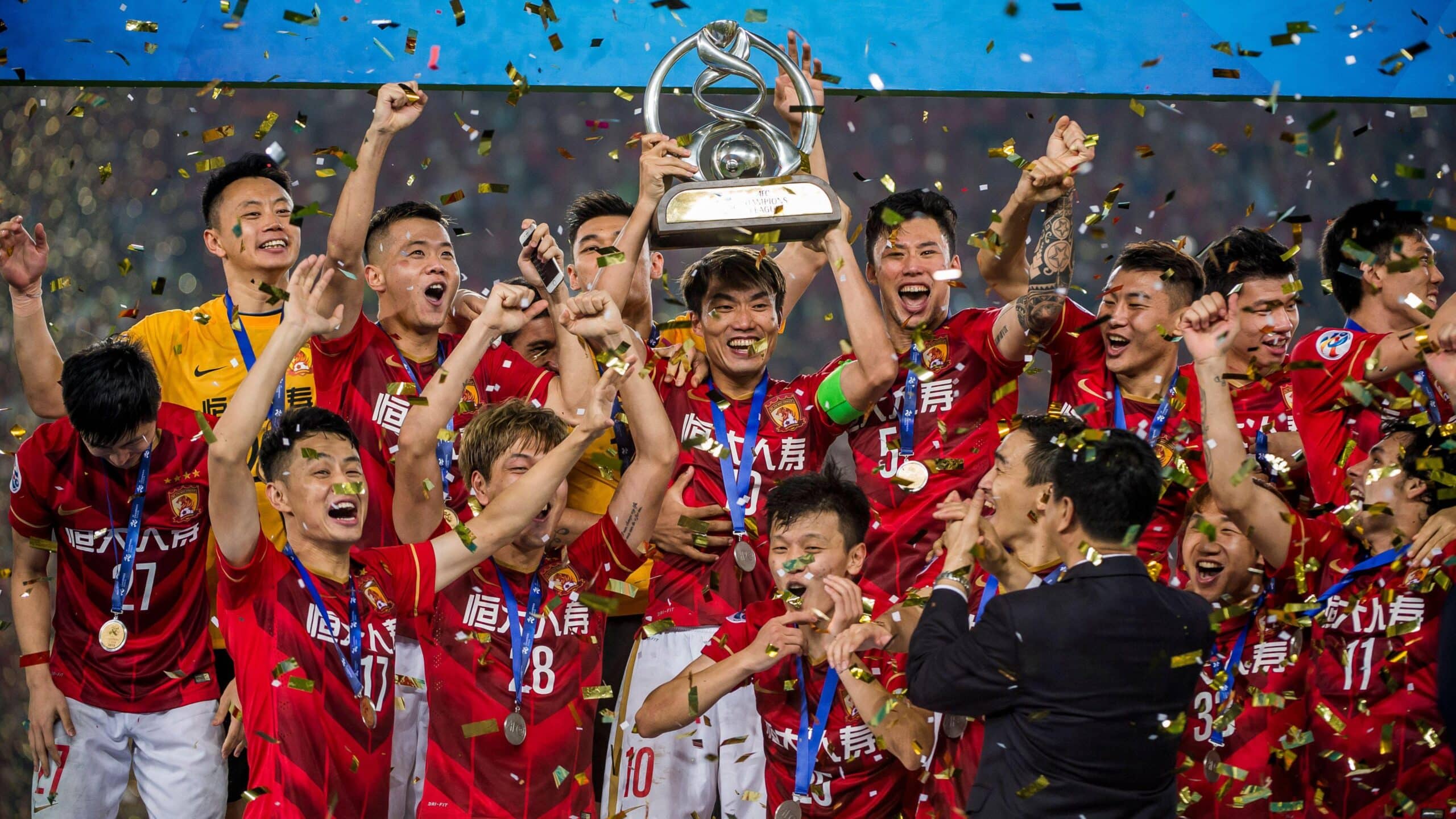The Rise and Fall of Guangzhou Evergrande FC

Guangzhou Evergrande FC has experienced a remarkable journey in Chinese football. Founded in 1954, the club’s ascent to prominence began in 2010 when it was acquired by China Evergrande Group. This acquisition marked a turning point for the team, which was then competing in the Chinese second tier. With significant investments and strategic changes, Guangzhou Evergrande transformed into a powerhouse in the Chinese Super League (CSL). However, recent financial troubles have led to a dramatic decline, raising questions about the future of the club.
Transformative Ownership and Ambitious Goals
The transformation of Guangzhou Evergrande FC began in earnest when China Evergrande Group purchased the club in 2010. At that time, the team was struggling in the second tier of Chinese football. The new ownership quickly rebranded the club as Guangzhou Evergrande and set ambitious goals. This move aligned with President Xi Jinping’s vision of making China a football superpower capable of hosting and winning the World Cup.
Under the new management, the club made substantial investments both on and off the pitch. They brought in high-profile coaches and players to elevate the team’s performance. In 2012, Italian World Cup-winning coach Marcello Lippi took the helm. His leadership led to three CSL titles, a Chinese FA Cup, and the prestigious AFC Champions League. Following Lippi, Brazilian coach Luiz Felipe Scolari, who had previously led Brazil to World Cup victory in 2002, took over. Under Scolari’s guidance, the club won an impressive seven trophies in just two and a half years.
The influx of international talent also played a crucial role in Guangzhou’s success. Players like Paulinho, Alberto Gilardino, and Jackson Martinez joined the team, attracted by lucrative contracts. This trend was not limited to Guangzhou; many clubs in the CSL began to spend heavily on foreign players, aiming to compete with established leagues like the Premier League and La Liga.
The Spending Boom and Its Consequences
The Chinese Super League’s spending spree attracted global attention. Clubs like Shanghai SIPG and Shanghai Shenhua made headlines by signing top-tier players for staggering fees. Brazil striker Hulk joined Shanghai SIPG for £46 million, while Chelsea midfielder Oscar followed for £60 million. Even Carlos Tevez, a former star for Manchester City and Manchester United, moved to Shanghai Shenhua for around £40 million. These signings raised eyebrows and sparked discussions about the financial implications for football worldwide.
Prominent figures in football voiced their concerns about the CSL’s spending habits. Chelsea manager Antonio Conte warned that the financial power of Chinese clubs posed a “danger for all teams in the world.” Similarly, Arsenal’s Arsene Wenger noted that China had the potential to lure entire European leagues with its financial resources. The allure of massive wages drew many players to China, with some, like Gareth Bale, reportedly linked to lucrative contracts worth £1 million a week.
However, this spending frenzy could not last indefinitely. The Chinese Football Association, recognizing the unsustainable nature of such expenditures, implemented measures to curb the financial excesses. A ‘luxury tax’ was introduced, making high-profile transfers prohibitively expensive. Additionally, a salary cap was established, and clubs were banned from naming teams after sponsors. These changes significantly impacted the financial landscape of the CSL.
The Downfall: Financial Crisis and Relegation
As the CSL faced increasing scrutiny over its spending, Guangzhou Evergrande began to experience financial difficulties. By 2021, the club’s parent company, Evergrande, defaulted on debt payments amid a broader real estate crisis in China. The COVID-19 pandemic exacerbated these issues, leading to a significant downturn in the club’s fortunes. In 2022, Evergrande filed for bankruptcy, plunging Guangzhou into a state of crisis.
The financial turmoil forced the club to cancel ambitious stadium plans and sell off key players. The consequences were dire, culminating in relegation from the CSL later that year. The once-mighty Guangzhou Evergrande, which had dominated Chinese football, found itself struggling to maintain its status. In the 2024 season, the club narrowly missed out on promotion but faced further setbacks when they were denied permission to compete in the upcoming campaign due to ongoing financial issues.
Despite these challenges, the club remains hopeful for the future. In a statement, Guangzhou expressed regret for their current situation and apologized to fans and supporters. They emphasized their commitment to addressing the aftermath of their financial struggles and supporting the development of football in China.
Looking Ahead: Hope Amidst Uncertainty
The future of Guangzhou Evergrande FC remains uncertain, but the club’s management is determined to navigate these turbulent waters. They have expressed a desire to continue existing in some form, even as they face significant challenges. The club’s commitment to its fans and the broader football community is evident in their statements.
As the landscape of Chinese football continues to evolve, Guangzhou’s story serves as a cautionary tale about the risks of unchecked spending and the importance of sustainable practices. The club’s rise to prominence was meteoric, but its fall highlights the volatility of the football industry, especially in a rapidly changing economic environment.
Observer Voice is the one stop site for National, International news, Sports, Editor’s Choice, Art/culture contents, Quotes and much more. We also cover historical contents. Historical contents includes World History, Indian History, and what happened today. The website also covers Entertainment across the India and World.

